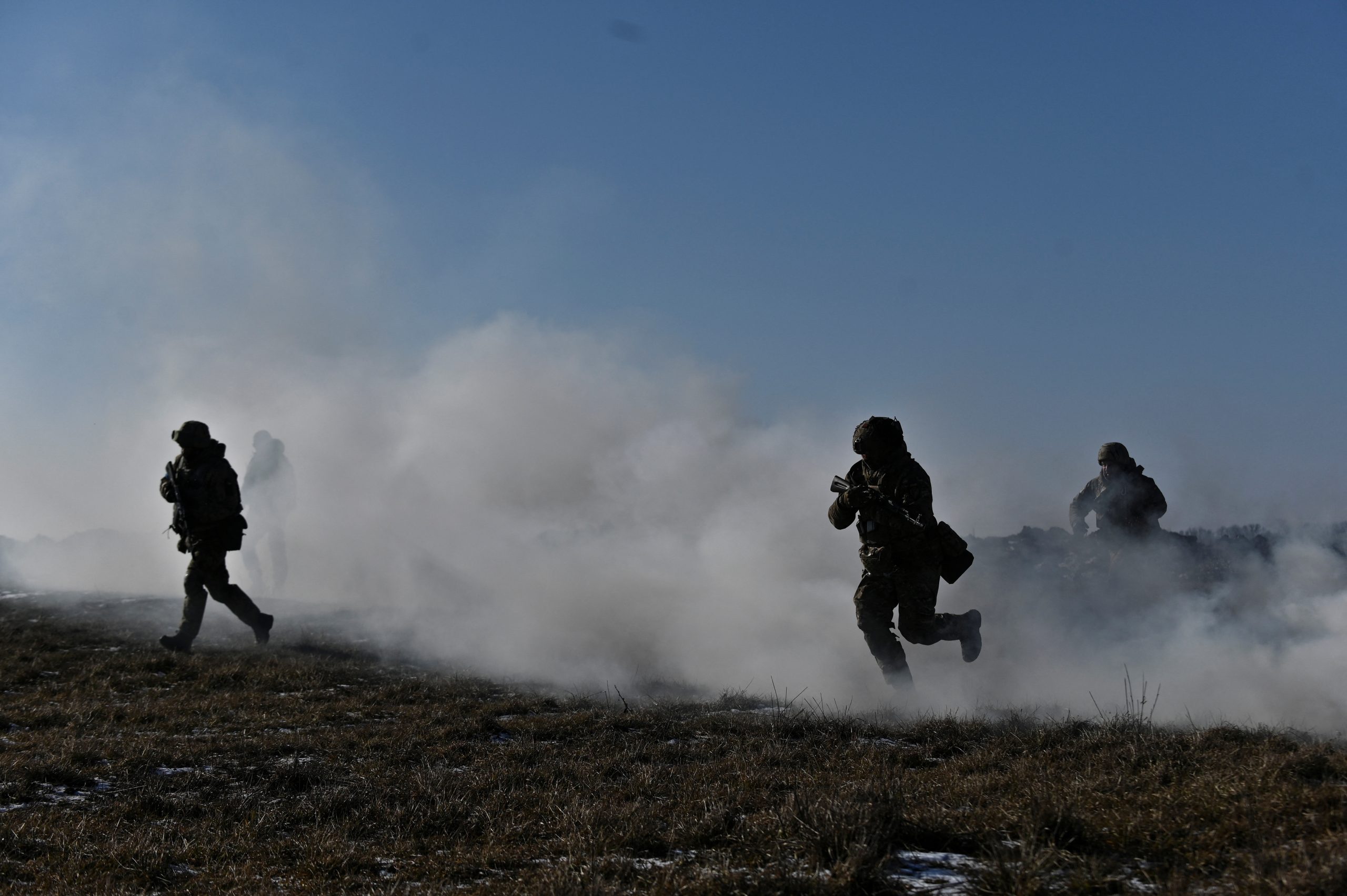
Chris Lange, FISM News
[elfsight_social_share_buttons id=”1″]
Russia unleashed wave after wave of missile and drone strikes throughout Ukraine Friday as its forces continued closing in on the last bastions of Ukrainian-held territory in the eastern industrial Donbas region.
Ukrainian officials said that the new Russian offensive they had been predicting ahead of the war’s one-year anniversary was already underway in the east.
As President Volodymyr Zelenskyy wrapped up a whirlwind tour of European capitals in his campaign for more military support, Moscow’s forces carried out missile and drone strikes in Ukraine’s east, west, and northern-central regions, causing widespread blackouts.
Ukraine‘s air command said it shot down 61 of a total of 71 Russian missiles in less than a 24-hour period, Reuters reported.
Energy Minister German Galushchenko reported that Russia struck power facilities across six regions with missiles and drones, leaving a large swath of the country without power.
Ukraine’s Prime Minister Denys Shmyhal called the attacks “another attempt to destroy the Ukrainian energy system and deprive Ukrainians of light, heat, [and] water.”
“We have sustained damage to high-voltage infrastructure and generation in the western, central, and eastern regions, which may cause power outages,” he said.
Attacks were also reported in Kyiv and Lviv near Ukraine’s Western border with Poland and in the Luhansk and Donetsk provinces in the east, where Russia has been closing in on territory still under Ukrainian control.
Meanwhile, in the northeast, Kharkiv Regional Gov. Oleh Syniehubov said critical infrastructure had been damaged by Russian strikes. Seven people were wounded in the attack, two grievously, he said.
Zelenskyy called the strikes a “terror that can and must be stopped.”
European Council President Charles Michel condemned the “indiscriminate” attacks as “war crimes” Thursday.
“This terror tactic will not deter Ukraine or its partners,” Michel wrote on Twitter. “The EU and [its] member states stand by Ukraine and all Ukrainians. And will further speed up the provision of military equipment, including air defense,” he said.
UKRAINE: RUSSIA ‘BURNING BODIES’ TO CONCEAL TROOP LOSSES
Newsweek reported that Ukraine’s military claimed in a lengthy Facebook post on Thursday that Russia has been burning its own dead in an attempt to conceal massive troop losses. Neither Ukrainian nor Western intelligence officials have been able to even ballpark the number of casualties the Russians have incurred as the Kremlin continues to conceal the numbers from even its own citizens.
The Ukrainian report indicates that the bodies are being incinerated at a mobile crematorium near Tokmak, a southeastern city that has been under Russian occupation since March 2022.
MOSCOW TO CUT OIL PRODUCTION IN RESPONSE TO WESTERN PRICE CAPS
Russia announced on Friday that it will slash oil production by 500,000 barrels per day beginning in March, when a cap imposed on the price of its crude by European allies will go into effect.
“As of today, we fully sell all our crude output, but as we stated before, we will not sell oil to those who directly or indirectly adhere to the ‘price ceiling,’” Deputy Prime Minister Alexander Novak said in remarks, per The Associated Press.
“In connection with that, Russia will voluntarily cut production by 500,000 barrels a day. It will help restore market-style relations,” he said.
Analysts, who largely anticipated the announcement, said the diminished production will almost certainly result in higher gas prices for Western consumers.
International benchmark Brent crude rose 2.2% Friday, to $86.42 per barrel.
RUSSIA, WEST VIE FOR SUDAN’S COOPERATION
Elsewhere, Russian Foreign Minister Sergey Lavrov met with Sudan’s military rulers in Khartoum Thursday, culminating his tour of Africa aimed at improving cooperation between the countries.
Lavrov held talks with Gen. Abdel Fattah Burhan, the head of Sudan’s ruling Sovereignty Council, as well as with his deputy, Gen. Mohammed Hamdan Dagalo, who heads a powerful paramilitary known as the Rapid Support Forces, The Associated Press reported.
Lavrov told a news briefing later that Russian-owned mining companies in Sudan worked “primarily in the field of developing the mineral resource base,″ adding, “We appreciate the attention that the Sudanese leadership pays to them.″
The Associated Press confirmed through its own investigation that Russia’s paramilitary Wagner Group “has a strong presence in Sudan’s far-flung provinces” and has been “given control of various Sudanese gold mines by the country’s military leaders in exchange for military and intelligence training.”
Lavrov’s meeting coincided with talks between U.S. and European diplomats and their Sudanese counterparts in a push to get an agreement from Sudan to restart efforts to resume its short-lived transition to democracy that unraveled in 2019 in a political coup that resulted in the removal of Islamic-backed President Omar al-Bashir.
